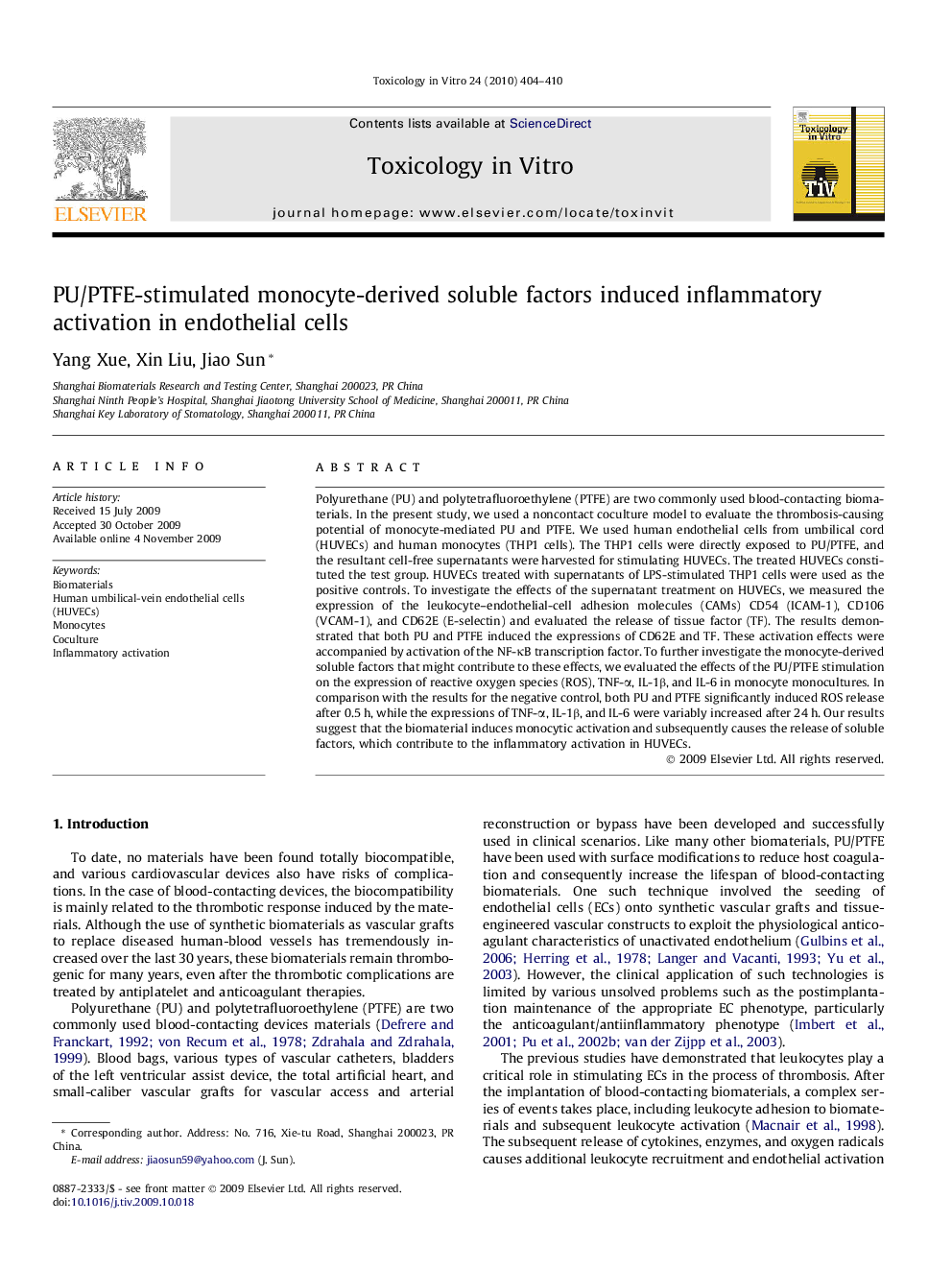| کد مقاله | کد نشریه | سال انتشار | مقاله انگلیسی | نسخه تمام متن |
|---|---|---|---|---|
| 2603329 | 1133817 | 2010 | 7 صفحه PDF | دانلود رایگان |

Polyurethane (PU) and polytetrafluoroethylene (PTFE) are two commonly used blood-contacting biomaterials. In the present study, we used a noncontact coculture model to evaluate the thrombosis-causing potential of monocyte-mediated PU and PTFE. We used human endothelial cells from umbilical cord (HUVECs) and human monocytes (THP1 cells). The THP1 cells were directly exposed to PU/PTFE, and the resultant cell-free supernatants were harvested for stimulating HUVECs. The treated HUVECs constituted the test group. HUVECs treated with supernatants of LPS-stimulated THP1 cells were used as the positive controls. To investigate the effects of the supernatant treatment on HUVECs, we measured the expression of the leukocyte–endothelial-cell adhesion molecules (CAMs) CD54 (ICAM-1), CD106 (VCAM-1), and CD62E (E-selectin) and evaluated the release of tissue factor (TF). The results demonstrated that both PU and PTFE induced the expressions of CD62E and TF. These activation effects were accompanied by activation of the NF-κB transcription factor. To further investigate the monocyte-derived soluble factors that might contribute to these effects, we evaluated the effects of the PU/PTFE stimulation on the expression of reactive oxygen species (ROS), TNF-α, IL-1β, and IL-6 in monocyte monocultures. In comparison with the results for the negative control, both PU and PTFE significantly induced ROS release after 0.5 h, while the expressions of TNF-α, IL-1β, and IL-6 were variably increased after 24 h. Our results suggest that the biomaterial induces monocytic activation and subsequently causes the release of soluble factors, which contribute to the inflammatory activation in HUVECs.
Journal: Toxicology in Vitro - Volume 24, Issue 2, March 2010, Pages 404–410